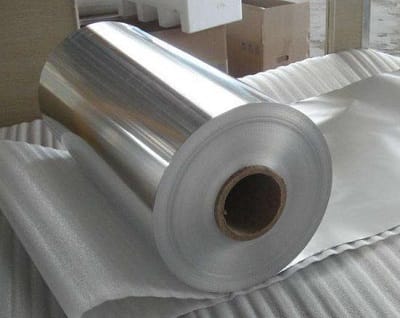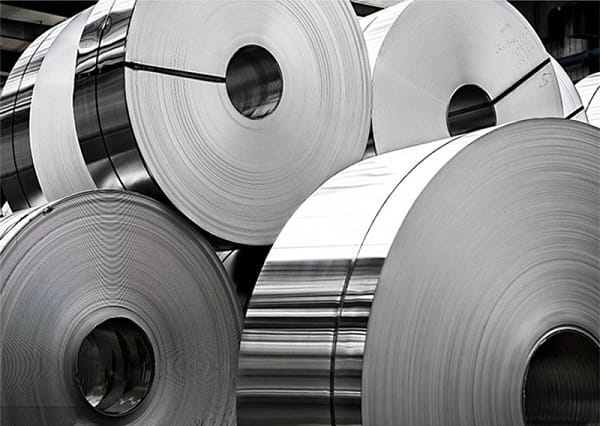Aluminum foil is one of the most versatile materials used across various industries. Its applications range from food packaging and household uses to industrial and medical purposes. This remarkable material, once limited to specific uses, has grown to become indispensable in daily life and production processes. In this article, we explore the modern advantages of aluminum foil, highlighting its diverse benefits and exploring why it continues to be a top choice for many industries.
What Makes Aluminum Foil Special?
Aluminum foil is a thin sheet of aluminum, commonly known for its ability to be molded into various shapes while retaining its strength. Made by rolling aluminum metal to a thickness of just 0.2mm or less, it is lightweight yet incredibly durable. The sheer flexibility of aluminum foil makes it a go-to material in a wide range of applications, from wrapping food to insulating products.
The Manufacturing Process: A Marvel of Efficiency
The production process of aluminum foil is an impressive feat of engineering. Aluminum ingots are heated and passed through rollers to create a thin sheet. The sheet is then subjected to additional processes like cold rolling, annealing, and trimming, all of which contribute to the material’s high performance. This method makes aluminum foil not only cost-effective but also scalable for various industries, ensuring that it is available at competitive prices.
Chemical Properties: Resistance to Corrosion
One of the standout features of aluminum foil is its resistance to corrosion. Unlike other metals, aluminum forms a thin oxide layer that protects it from further oxidation. This unique property makes it especially suitable for food packaging, as it can safely protect against moisture, light, and air, which could otherwise lead to contamination or spoilage.
Key Advantages of Aluminum Foil in Modern Applications
Aluminum foil is used across industries due to its adaptability, strength, and cost-effectiveness. Below are the primary advantages that have made aluminum foil an indispensable material in modern manufacturing, packaging, and more.
Environmental Benefits: Sustainability and Recyclability
One of the most important modern advantages of aluminum foil is its sustainability. Aluminum foil is 100% recyclable, and recycling aluminum saves up to 95% of the energy required to make new aluminum from raw materials. This makes aluminum foil an environmentally friendly option, especially in industries where sustainability is a growing concern. Furthermore, using recycled aluminum foil reduces the need for mining, which has a significant environmental impact.
Aluminum foil’s recyclability is especially important in industries like packaging, where vast amounts of material are consumed daily. This reduces the environmental footprint of industries that rely on aluminum foil, ensuring a more sustainable future for all.

Enhanced Food Preservation: A Staple in the Food Industry
In the food industry, aluminum foil plays a vital role in preserving the quality and freshness of food. Aluminum foil serves as an effective barrier against light, oxygen, and moisture, all of which can lead to spoilage. Whether used to wrap sandwiches, line baking trays, or seal ready-to-cook meals, aluminum foil prevents contamination and extends the shelf life of food products.
In addition, aluminum foil’s non-toxic properties make it safe for use in cooking and storage. It ensures that food stays free from external contaminants while maintaining taste and texture, which is crucial in a fast-paced, quality-conscious food industry.
Heat and Temperature Resistance
Another significant advantage of aluminum foil is its exceptional ability to withstand both high and low temperatures. Whether it’s used in cooking, insulation, or industrial applications, aluminum foil remains stable in extreme temperature conditions. In the kitchen, it can be used for baking, grilling, or even roasting, without losing its structural integrity. Similarly, in industrial uses, aluminum foil is widely used for heat exchange systems and insulation materials because of its superior thermal conductivity and resistance.
Lightweight Yet Strong
The lightweight nature of aluminum foil makes it highly attractive for packaging applications. Despite its thinness, aluminum foil maintains strength and durability, making it ideal for wrapping fragile products or preventing breakage. Its lightness also reduces transportation costs in industries that rely on large quantities of materials, such as the food, beverage, and pharmaceuticals sectors.
Electromagnetic Shielding
An often-overlooked benefit of aluminum foil is its ability to act as a barrier to electromagnetic interference (EMI). This makes it an essential component in many electronic and medical applications, where precision is critical. Aluminum foil can protect sensitive equipment from external electrical fields, ensuring optimal performance and reducing the risk of data corruption or equipment failure.
Aluminum Foil: Essential for Packaging and Manufacturing
Innovative Packaging Solutions
Aluminum foil has revolutionized packaging in multiple industries. Thanks to its versatility and protective qualities, it is a staple in food packaging, pharmaceuticals, and even cosmetics. The ability to customize aluminum foil packaging to suit specific needs—whether it be in terms of size, shape, or design—has led to increased demand across different sectors.
In the food industry, aluminum foil is commonly used for packaging snacks, ready-to-eat meals, and baking products. It provides an airtight seal that prevents contaminants while retaining the flavor and nutritional value of the product. Additionally, aluminum foil packaging often has a sleek and modern appearance, which appeals to consumers looking for convenience and premium quality.
Medical and Pharmaceutical Uses
In medical and pharmaceutical applications, aluminum foil is used extensively for the packaging of tablets, ointments, and other sensitive products. The non-reactive nature of aluminum foil ensures that the product remains unaltered, safe from contamination, and secure during transportation. Additionally, aluminum foil can provide a tamper-evident seal, which is critical for ensuring the safety of consumers.
Industrial and Construction Applications
Aluminum foil is also used in a variety of industrial applications, such as insulation, soundproofing, and protective barriers. Its light weight, combined with its excellent thermal and electrical properties, makes it ideal for construction, automotive, and HVAC systems. In the construction industry, aluminum foil is often used in reflective insulation to improve energy efficiency in buildings.
Future Prospects of Aluminum Foil: Innovating for the Next Generation
As technology continues to advance, so too do the uses and innovations surrounding aluminum foil. Researchers are exploring new applications, from advanced medical devices to the aerospace industry, where aluminum foil’s lightweight and strength properties can be harnessed for even more critical uses.
Smart Packaging Solutions
One exciting future application for aluminum foil lies in the development of smart packaging systems. With the advent of IoT (Internet of Things) and RFID technology, aluminum foil can be incorporated into packaging that not only protects products but also tracks their condition and location in real time. This development could revolutionize the way we track food and pharmaceutical products throughout the supply chain.
Sustainability in Manufacturing
The future of aluminum foil will also see an increased focus on sustainability. With growing concerns about environmental impact, companies are seeking more energy-efficient methods to produce aluminum foil. The recycling process will continue to play a crucial role in reducing the carbon footprint of aluminum foil, and innovations in recycling technology will make it even more efficient.
The Unmatched Value of Aluminum Foil
In conclusion, aluminum foil is more than just a kitchen staple—it is a material with a broad array of applications across industries ranging from food packaging to medical technology. Its modern advantages, including sustainability, heat resistance, and versatility, make it an indispensable asset in today’s world. Whether you’re looking for packaging solutions, cooking materials, or advanced industrial applications, aluminum foil provides a reliable, cost-effective, and eco-friendly choice.
With constant innovation, aluminum foil will continue to play a crucial role in shaping the future of manufacturing, packaging, and many other industries. Its unmatched value and versatility will ensure its place at the forefront of modern materials for years to come.
